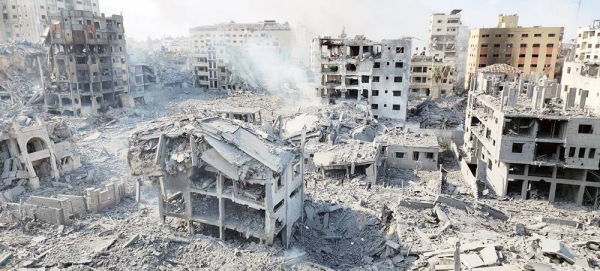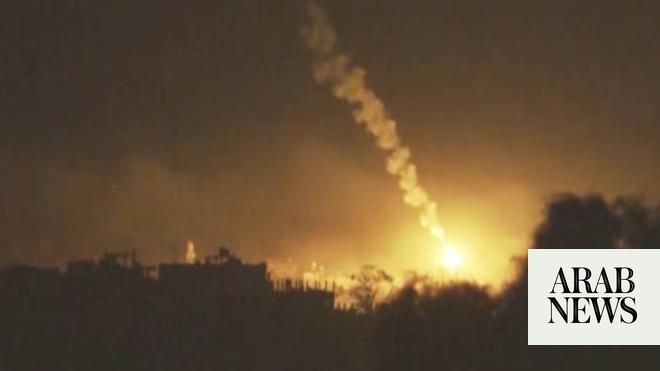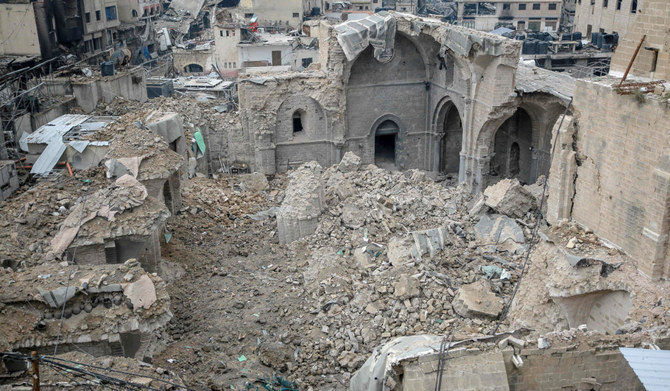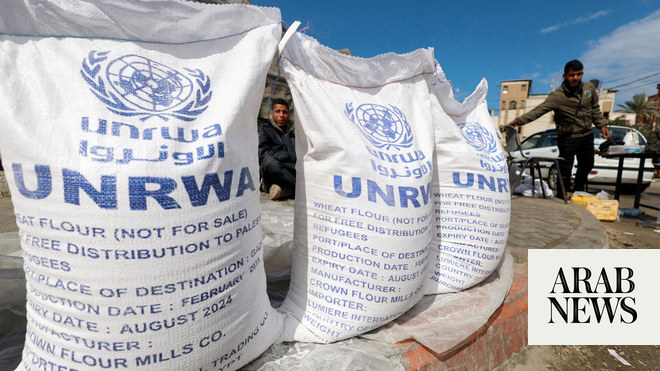
The UN’s most senior official overseeing aid and reconstruction in Gaza has told the BBC that the international community is collectively failing innocent civilians in the territory.
Sigrid Kaag, who was appointed nine months ago to improve the delivery of urgently needed aid, said a report she is due to make to the UN Security Council on Monday would be “very somber and perhaps dark”.
She described the situation in the territory as a “significant catastrophe”.
“We"re not meeting the needs, let alone creating prospects and hope for the civilians in Gaza.”
In a rare interview, the senior UN Coordinator for Humanitarian Action and Reconstruction in Gaza said the systems to deliver assistance — including through multiple land and sea routes into Gaza - were now in place.
And "the UN is working around the clock and people are risking their lives day in, day out".
But she called Gaza “the most unsafe place in the world to work”.
She said she regretted that “not much else can be improved” until there was a ceasefire and the release of Israeli hostages still being held there.
Ms Kaag said that what is known as “deconfliction" - to ensure aid missions can proceed safely - was failing: “It’s not working, or working insufficiently, to render the operations feasible.”
Last week the UN said another of its aid convoys heading into northern Gaza was blocked by Israeli forces, and Gaza"s Hamas-run Civil Defence agency said a UN school operating as a shelter was targeted by an Israeli air strike, killing 18 people. The UN said six of its staff died.
Israel accused Hamas of using the facility as “a command and control center” and said Hamas fighters were among the dead.
The UN says nearly 300 aid workers, more than two-thirds of them UN staff, have been killed so far in the grievous Gaza war, which is now approaching the one-year mark.
Ms Kaag, one of the few UN officials to meet senior Israeli officials including Prime Minister Benjamin Netanyahu, described her discussions as “constructive”.
“We put asks on the table. Some are met. We also obtain commitments.”
But she pointed out that “between the commitment and the time that it takes to see visible and tangible implementation, too much time passes”.
“There is not a day, not a second to lose,” she told the BBC in an interview from New York.
Israeli officials have repeatedly insisted enough aid is reaching Gaza, and deny reports of widespread and severe hunger.
Ms Kaag said that “we do know from our surveys and studies that the majority of the population is food insecure” and the UN’s health centers know “how many malnourished or acutely malnourished children or babies come in”.
Asked about Israeli accusations that the main problem with food delivery was Hamas’s diversion of aid, Ms Kaag replied: “We hear that a lot. I find that very difficult to confirm."
She said that in a war zone “I can’t say everything goes right all the time,” but emphasized: “I can vouch for the integrity of the operations of our colleagues.”
She described Unrwa — the UN’s largest aid agency working in Gaza — as “the backbone of the totality of UN delivery.”
Netanyahu has accused the agency of being “totally infiltrated" by Hamas and has called for it to be “terminated”.
Ms Kaag said investigations have taken place into Israeli allegations that Unrwa staff were involved in Hamas’s unprecedented attacks of 7 October across southern Israel, and that whenever evidence was provided investigations would continue.
Last month the agency fired nine UNRWA workers - it had previously sacked 12 employees, and put seven others on administrative leave, out of its Gaza workforce of 13,000.
Ms Kaag, a former Dutch deputy prime minister who first worked on Israeli-Palestinian issues 30 years ago, says she is often asked by Gazans during her visits there: “When will our suffering end?”
She spoke of the deep trauma of this conflict, including for Israeli hostages, and expressed hope that all those working to resolve this crisis would be forgiven.
“If we’re too slow, too little, too late, and if they feel that we failed them, the only thing we can do is work even harder.”
But she underlined “there is no compensation for lives lost and trauma incurred; nothing will make that right”. — BBC











